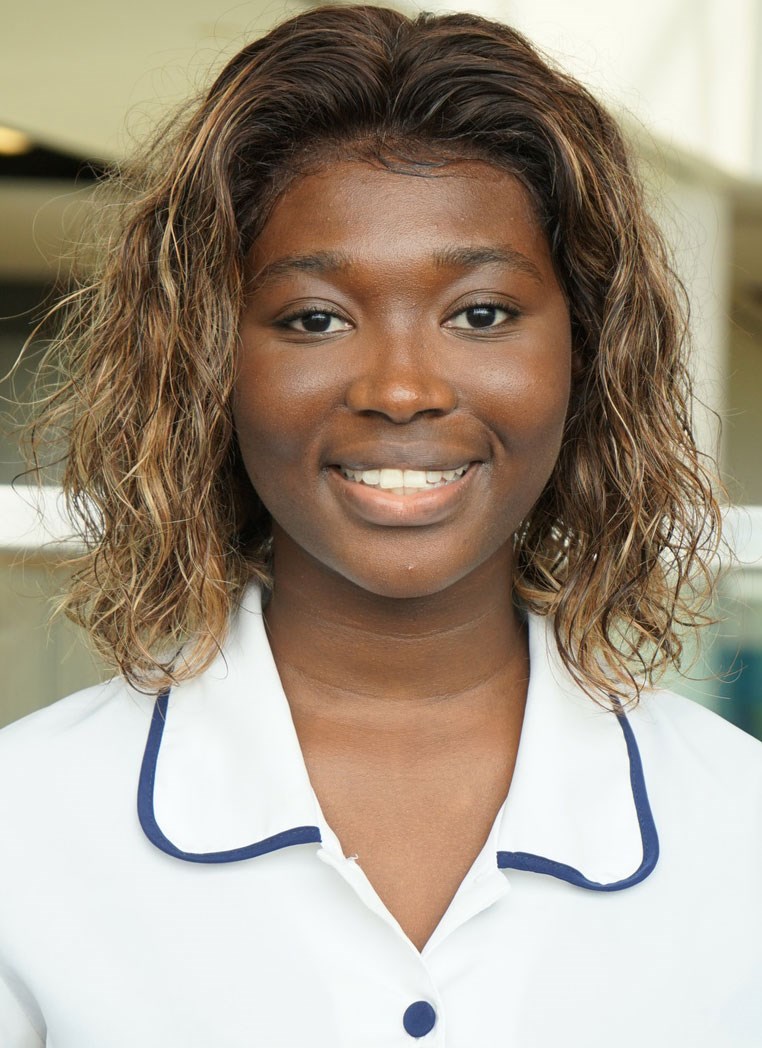Shirley Adubofour is putting what she learns in her classes into practice.
A junior who is majoring in political science and minoring in race and ethnic studies, Adubofour serves as the student representative on the university’s Diversity, Equity and Inclusion Task Force and its Student Success and Experience Subcommittee.
She was elected to represent the views of the Black Leadership Advisory Council (BLAC), a group of leaders representing four Black-identified student groups. They banded together to seek changes at the university after racial justice protests spread across the U.S. in spring and summer 2020 – and to advise campus leaders on how to make them.
“I wanted to do anything possible to make sure that our voices are heard,” Adubofour says.
Adubofour, of Worcester, Massachusetts, enrolled at UMass Lowell as a criminal justice major and a member of the River Hawk Scholars Academy (RHSA), the university’s nationally recognized support program for first-generation college students.
Academically, her first year was “more exploring.” At the suggestion of her advisor, Shontae Praileau, she took an upper-level elective, Philosophy of Race and Gender.
Adubofour loved it, as well as another class, Politics of Race and Ethnicity. She also took Introduction to American Politics with Assoc. Prof. Mona Kleinberg. Kleinberg encouraged her to consider majoring in political science because of her contributions to class discussions. After taking more political science classes, Adubofour switched majors.
Kleinberg also invited Adubofour to assist with a research project: analyzing the syllabuses for introductory American politics classes at more than 500 colleges and universities to see whether they teach the traditional curriculum, mostly centered on white men, or a more balanced curriculum that better represents the experiences and contributions of other groups.
“It was a great first research experience to have,” Adubofour says.
Adubofour also joined two organizations on campus: the Black Student Union and the Association of Students of African Origin. When they joined up with the Haitian American Students Association and the National Society of Black Engineers to form BLAC, Adubofour drew on her race and ethnic studies classes to advocate for the group’s issues.
She says she’s gotten a lot of support and guidance from her RHSA mentor, Criminal Justice Asst. Teaching Prof. Yahayra Michel, who also is co-coordinator of the race and ethnic studies minor and a faculty mentor to the RHSA.
“She had a big impact,” Adubofour says. “She wanted to let me know I could open up to her, not just about school, but also about mental health and the religious aspects” of life.
As a sophomore, Adubofour spent a virtual semester during the COVID-19 pandemic at The Washington Center for Internships and Academic Seminars in Washington, D.C. She interned with Dr. Paul Zeitz of Build a Movement, a nonprofit that advocates for passage of a bill that would establish a U.S. Commission on Truth, Racial Healing and Transformation.
“It changed everything. If I could do it again in person, I would,” says Adubofour, who met with congressional representatives and senators and their aides – and learned a lot about how to build political support for legislation.
For her final project, she organized an online event, “Heal the Racial Aggression.” Sponsored by BLAC and Build a Movement and co-sponsored by UML’s Center for Women and Work, it brought together trans and cisgender Black women and allies to talk about intersecting identities and the history of microaggressions and to promote healing.
She has brought all that experience to bear on her work with the Diversity, Equity and Inclusion Task Force, where her committee is looking at retention and graduation rates for different student populations – and figuring out how to better support diverse students without treating particular groups as “other.”
She works for Jumpstart, a literacy program for low-income preschool children, and got a paying internship in the legal department of Loomis, Sayles & Company, a financial planning firm in Boston during the summer after her sophomore year. Adubofour is thinking of becoming a lawyer.
But she always makes time to relax and recharge by going out with friends, exploring Boston, and spending time with her family and at church.
“When you do this kind of social justice work,” she says, “you need a break.”


